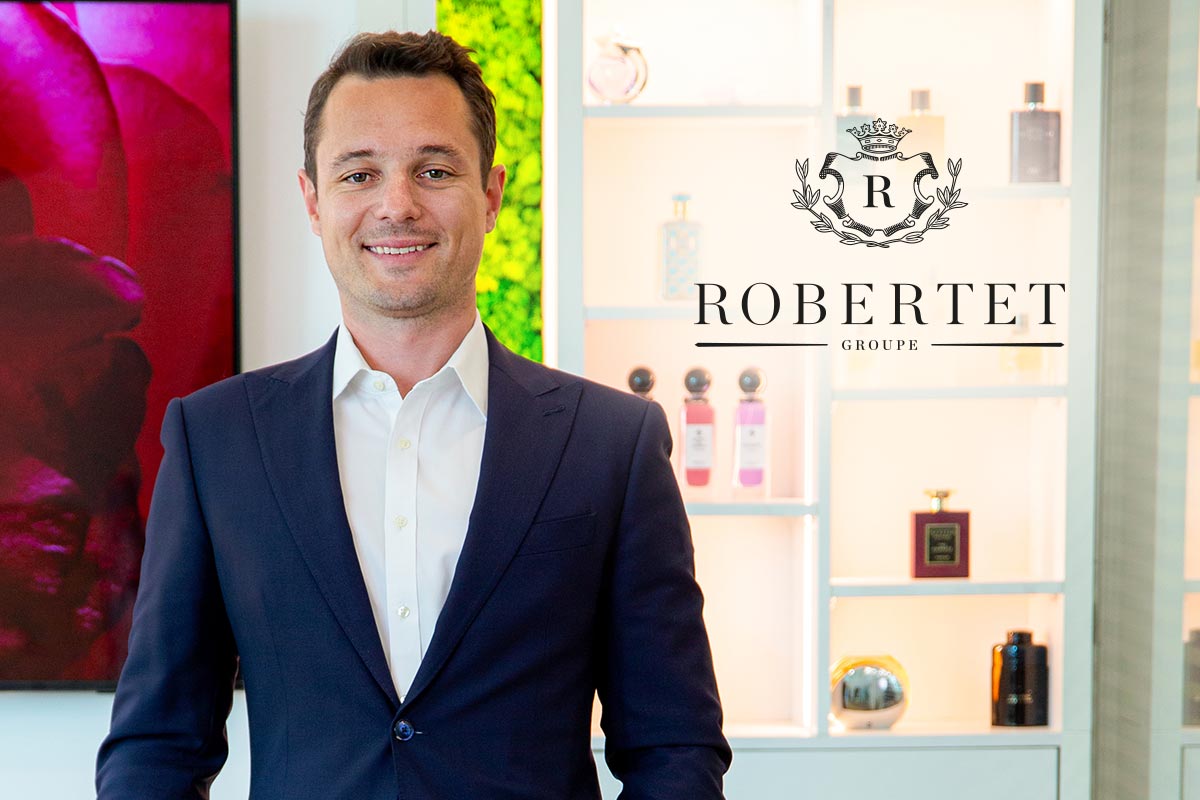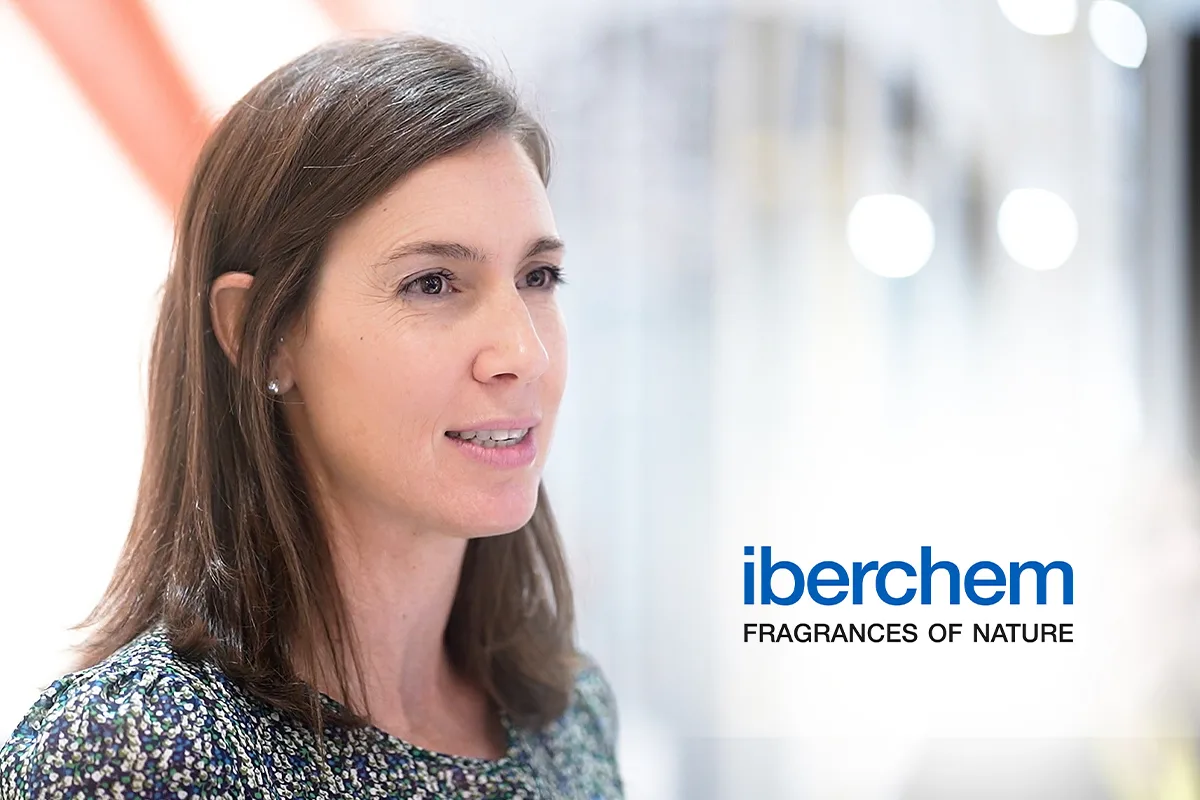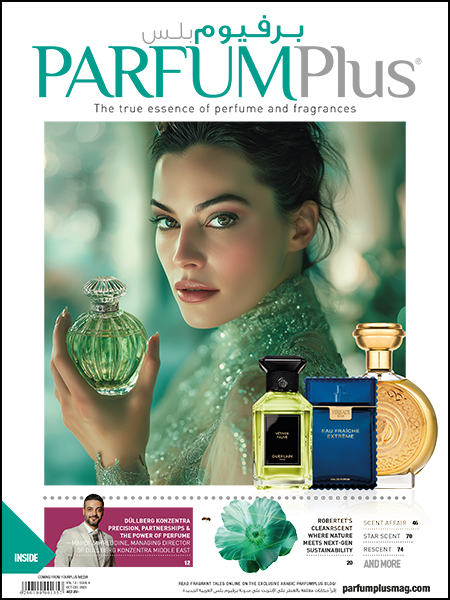The celebrated perfumer talks about his journey, the Middle East consumer and recent trends in perfumery
ParfumPlus (PP) : Hi Christian. How did your journey into perfumery begin?
Christian Provenzano (CP) : Before beginning my journey as a perfumer, I was a guitarist of a band. As part of the band, I travelled all over Europe. And then at 19, I went to Amsterdam and started out as a laboratory technician for a perfumer, who trained me, recognised my talent and told me that I have a ‘great nose’. Taking his advice seriously, I joined a perfumery school. After graduating from there, I returned to work with the same perfumer as a trainee. Then I worked in the UK for a few years gaining a lot of experience before joining CPL Aromas, where I have been working for over 25 years now.
PP : How was your experience like in CPL Aromas in the past 25 years?
CP : It has been a wonderful journey and I thoroughly enjoyed working for CPL Aromas. I feel very much like a part of the CPL family. Of course, my career has developed so much and I have learnt a lot from the company. CPL Aromas is an international fragrance house that remains family-owned. It was established in 1971 by the Pickthall family, Terry and Michael. Michael was the perfumer and Terry was on the financial side. PP : What is your personal take on the Middle Eastern perfumery market and the consumer?
PP : What is your personal take on the Middle Eastern perfumery market and the consumer?
CP : The Middle East market is very different and unique compared to other regions. I would say that Middle East perfumery is much more exciting than any other part of the world. It feels like in other parts of the world, there is no more innovation. But in the Middle East, there is a lot of freedom and scope to innovate and as a perfumer I love this.
People in the Middle East are very passionate about their fragrances and also have the luxury of being able to splurge on this passion. It is not unusual for women to wear two or three perfumes at the same time. And they do this because they know how to layer it beautifully. I have seen them test a perfume at a store and then come back in a few hours after testing how the fragrance feels on them and then purchase if they like it. This shows how well they know their scents and how particular they are about their choices.
PP : What kind of perfumes do you specialise in – French, Oriental or French-Oriental?
CP : I have been privileged to work on many areas of perfumery and have gained substantial knowledge of all types of fragrances. But after moving to Dubai in 2006, I have specialised in French-Oriental and traditional Arabic fragrances. I have started loving these types of fragrances very much. But of course, I am still working on French fragrances for our major customers around the world.
PP : You have worked with big Oriental fragrance brands like Ajmal, Rasasi, Arabian Oud amongst others. What is it that made you choose this market for your specialisation?
CP : I have been fortunate to travel in many areas in the Middle East and India, smelling different raw materials. Maybe many perfumers are not even aware of their existence. And with this advantage and of course my sense of smell, I knew that I was going to create some amazing fragrances for this part of the world.
PP : Synthetics v/s Naturals… which side of the fence are you on?
CP : I use both. Perfumery is as much a science as it is an art, and you need synthetics and naturals along with an understanding of how they work together to create a great perfume. If synthetics were not available to the perfumers, you wouldn’t have Chanel No.5 or Shalimar by Guerlain as some of the world’s best fragrances.
 PP : As part of CPL Aromas, what are the changes that you have seen across the globe?
PP : As part of CPL Aromas, what are the changes that you have seen across the globe?
CP : Niche fragrances have become extremely popular in the Middle East region, which is evident with many new launches. Therefore, French brands like D&G, Armani, Dior and others are now becoming followers rather than leaders. Sometimes, the word ‘oudh’ is misleading in some new fragrances as they may not contain any genuine oudh oil but other ingredients reminiscent of oudh. I personally call this trend as ‘oudh mania’.
PP : What are the future innovations that we can expect from CPL Aromas?
CP : We are working on a new in-house technology that will help us with the development of fine fragrances. CPL Aromas has a number of patent-protected in-house technologies that enable us to have a competitive edge when creating fragrances for our clients. We are very excited about this new technology but for now, it is top secret.








Add Comment